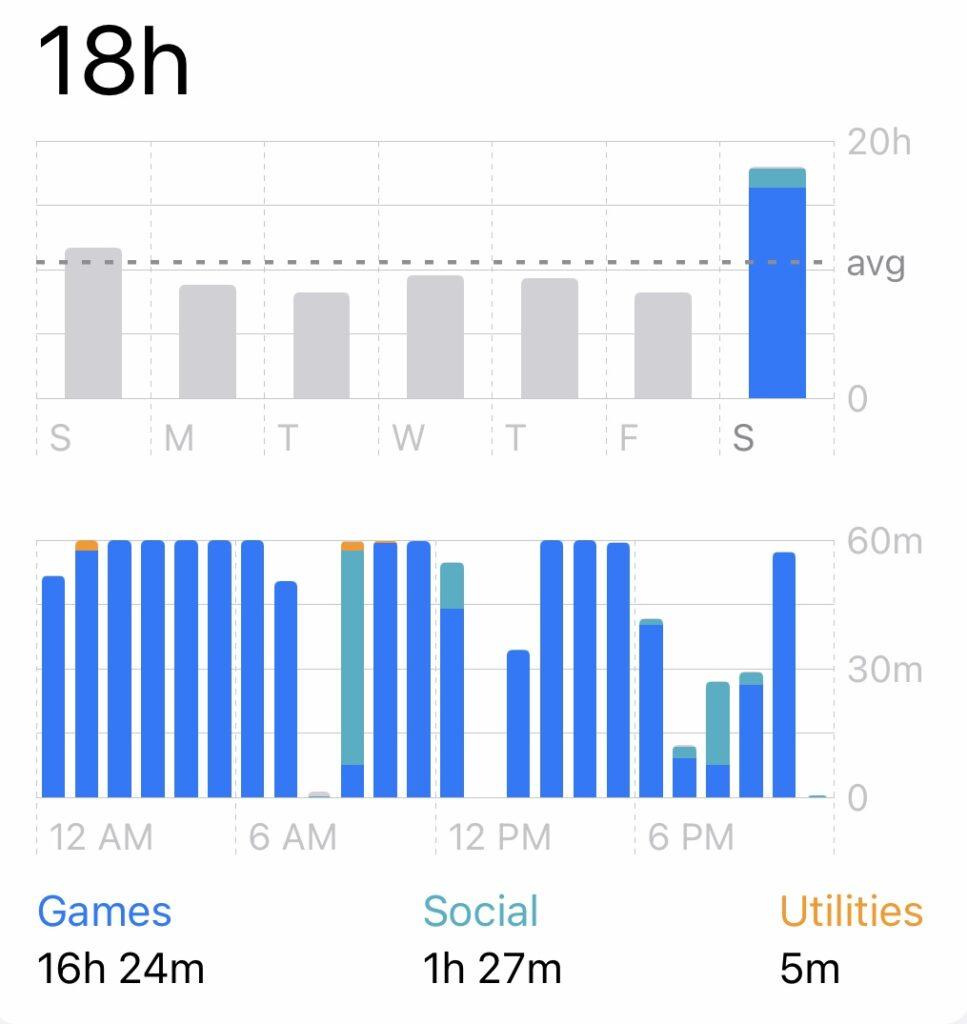When I was younger, I remember the frustration of seeing a white screen adorned with a black hourglass that interrupted many online gaming sessions and countless texting exchanges. While implemented with good intentions, the screen time-limiting app hindered the natural development of my self-control, and I’m still suffering the consequences.
Screen time is a feature implemented into every Apple device. It lets parents set time limits or downtimes for their children’s devices. Once the child or teen hits the time limit for certain apps or devices, they need parental permission via a password to continue using the device. I have suffered through the annoying app since I received my first iPhone in seventh grade. Only recently did my parents agree to remove it .
To be sure, I can see the allure of this feature to concerned parents: It gives them the illusion of controlling the time that seemingly out-of-control, weak-willed adolescents spend on their phone. However, this feature only provides a short-term solution and has negative long-term consequences, the worst of which is impeding the natural development of children’s self-control and independence.
I’m not denying many teens are addicted to screens. Some stay up late at night on their devices. Others procrastinate on their homework as they play games or watch TV shows. By restricting time through the app, it’s assumed these children will eventually learn to use their devices less habitually and manage their time better.
This assumption is wrong. An outside force “helping” a developing child to control themselves means they no longer need to do it themselves. While the time spent on screens will probably be lower in the short term, the result is an absence of natural self-control coming from the child themselves; as soon as the restrictions are lifted, children will have a harder time managing themselves on their own.
Eventually many teens will have to go to college, where they will have to manage everything independently. The more stringently parents restrict screen time in their teen’s’s life, the harder the harder it will be for them to develop their own good habits.
This relapse from the potential effects of restricting your teen’s devices is comparable to that of dieting. While some people come out of their diet and continue to eat healthy and stay fit, others relapse, at times binge eating uncontrollably and becoming even more unhealthy than when they started off. Restricting screen time often has the same effect.After my screen time was finally lifted earlier this semester I found myself unable to stop browsing social media and playing games because they had been restricted for so long. Although I had lots of free time, I slept late and struggled to turn in simple assignments. It was like an insatiable hunger that kept drawing me back to my screens.
It doesn’t help that the Apple “Screen Time” function is full of holes either. If a child wants to use their devices after their time limit, the loopholes in the program are numerous, easily accessible with a single Google search. This makes it so that screen time becomes simply an obstacle children must work around rather than encouragement not to; consequently, it has the effect of developing qualities like sneakiness and disobedience over self-control.
While I’m not saying screen time is a function a parent should never use, I don’t think they should rely on it as an easy fix for a teens self-control issues. While it seems counterintuitive, giving teens a little more room to be independent and manage themselves is the best way to help them naturally develop responsibility.
Parents could remind their teens once in a while of how much time they’ve spent on their phone that day or how much work they have yet to complete. If they consistently sleep late, parents can help them plan out their time in the afternoon so they have a healthier sleep schedule. But I wouldn’t recommend just setting a screen time and assuming all problems have been solved. A little more trust in a teen’s ability to learn and develop goes a long way. Now or later, teens will have to figure it out themselves anyway.
























